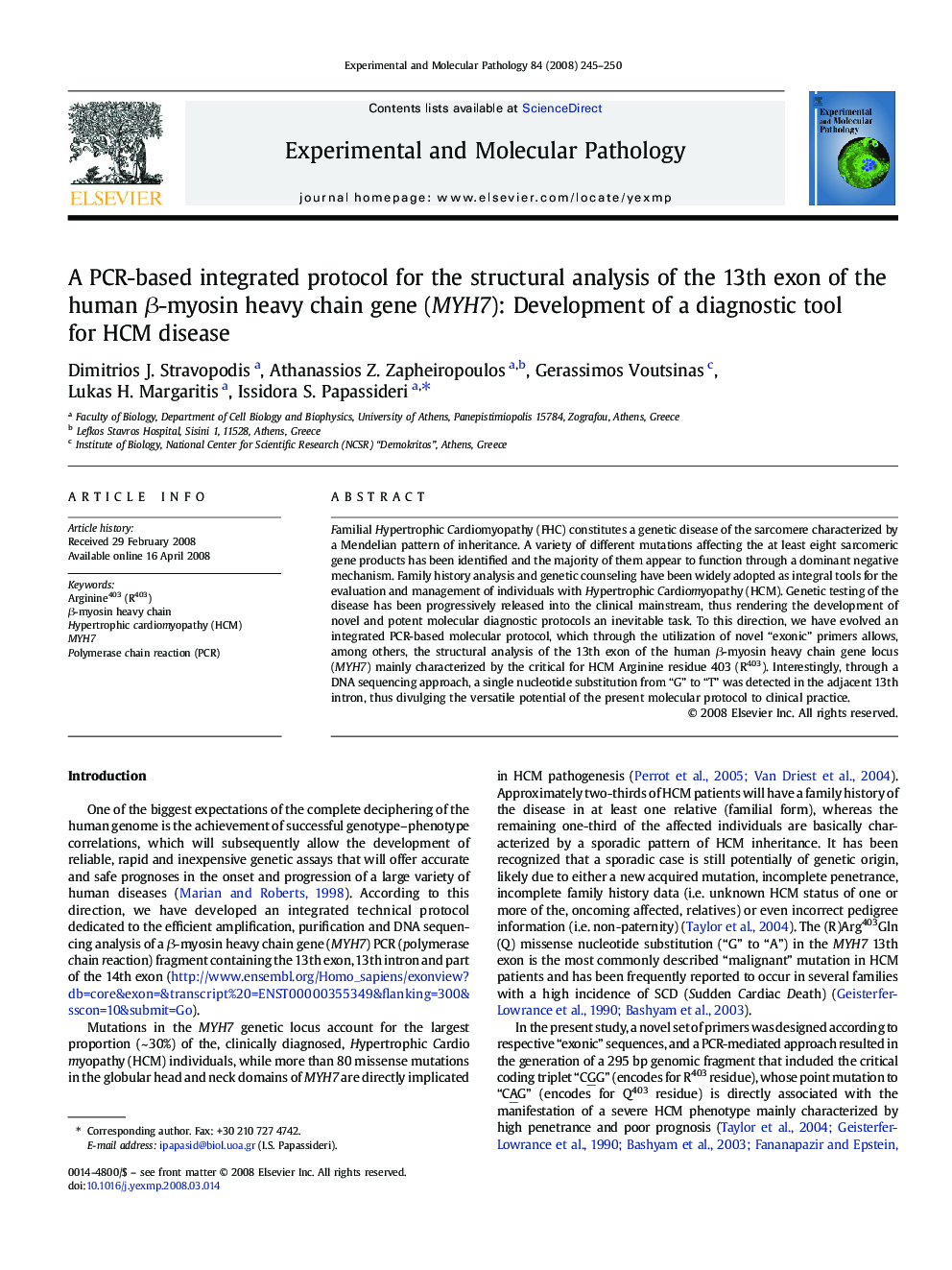| Article ID | Journal | Published Year | Pages | File Type |
|---|---|---|---|---|
| 2775628 | Experimental and Molecular Pathology | 2008 | 6 Pages |
Familial Hypertrophic Cardiomyopathy (FHC) constitutes a genetic disease of the sarcomere characterized by a Mendelian pattern of inheritance. A variety of different mutations affecting the at least eight sarcomeric gene products has been identified and the majority of them appear to function through a dominant negative mechanism. Family history analysis and genetic counseling have been widely adopted as integral tools for the evaluation and management of individuals with Hypertrophic Cardiomyopathy (HCM). Genetic testing of the disease has been progressively released into the clinical mainstream, thus rendering the development of novel and potent molecular diagnostic protocols an inevitable task. To this direction, we have evolved an integrated PCR-based molecular protocol, which through the utilization of novel “exonic” primers allows, among others, the structural analysis of the 13th exon of the human β-myosin heavy chain gene locus (MYH7) mainly characterized by the critical for HCM Arginine residue 403 (R403). Interestingly, through a DNA sequencing approach, a single nucleotide substitution from “G” to “T” was detected in the adjacent 13th intron, thus divulging the versatile potential of the present molecular protocol to clinical practice.
